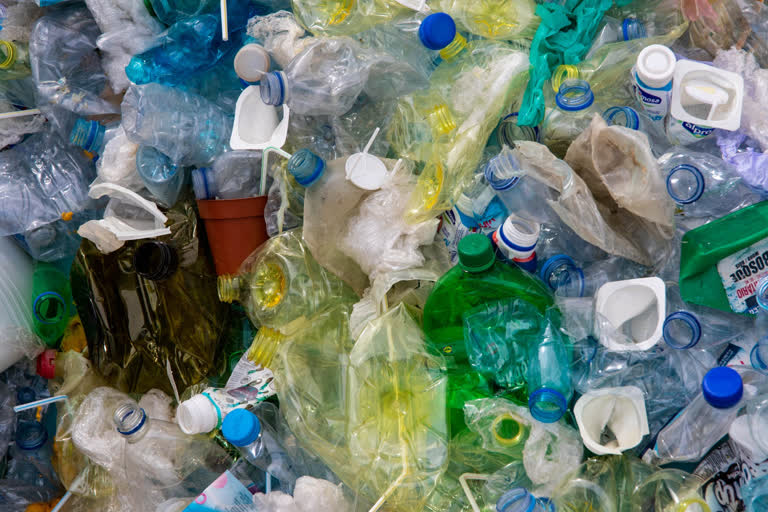Hyderabad: The entire nation is celebrating the 150th anniversary of Gandhi, who is the epitome of non-violence. On this occasion, home minister Amit Shah gave a laudable call while speaking at Sankalp Yatra. He said that we must take the integrity and determination of Gandhi as an example and work towards banning one-time plastics.
South Central Railway has banned the usage of 50-micron plastic bags from October 2nd following Narendra Modi’s appeal to the nation. Lok Sabha, Secretariat, Air India and government of Odisha followed the lead.
In fact, Sikkim, Nagaland, Delhi, Maharashtra and Karnataka declared one-time plastic usage as a punishable offence. It is due to the lack of awareness among people given the fact that the implementation of the plastic ban is lacklustre in many areas despite measures by the government.
The reason why Sikkim is free of plastic from two decades is its citizens’ active role in conserving the environment.
Only when people become aware of the plastic menace, the nation can be successful in implementing a 100 per cent ban.
In the past 7 decades, 830 crore tonnes of plastic were produced out of which 60 per cent are still lingering in various forms on land and in water. In India, 95 lakh tonnes of plastic are being produced every year out of which 40 per cent is left uncollected. According to surveys, 43 per cent of plastic used for packaging is disposable.
Various studies have warned that plastic fibres in air and water can cause mutations in human DNA. Plastic waste is the main reason for natural calamities, malfunctioning of sanitary systems and extinction of various species like sea turtles.
The Supreme Court has warned 5 years ago that immediate measures must be taken to prevent the plastic hazard, which is dangerous than a nuclear disaster, but the governments are turning a blind eye. Nations like Germany and England have enforced stringent guidelines on plastic supply and production. Plastic, which has a life span of 1000 years must be controlled before it engulfs human beings.
Government’s failure in managing and recycling tonnes of plastic waste is obvious. India must learn a lesson or two from Thailand and Australia in waste management and from Ireland and France in restricting usage.
Japan is progressing with its innovative methods of plastic control. Sweden has already won accolades as the best nation for plastic recycling.
Governments must investigate novel methods for plastic recycling and check the feasibility of providing tax exemptions to organizations who manage wastes. Using plastic in constructing roads and power generators is an example of effective plastic recycling.
In nations like Vietnam, plastic handbags which deteriorate in 100 days with the slightest exposure to sunlight or moisture are being manufactured.
India must pave way for such inventions too by encouraging startups to take the lead of plastic ban. With all these steps, streamlining plastic usage and effective waste management will be a reality in the coming days. Besides creating an enlightened society, it is the need of the hour to make the next generation aware of this hazard through the school curriculum.
Also read: World's 'First robot citizen' in India; talks about climate change, energy conservation



